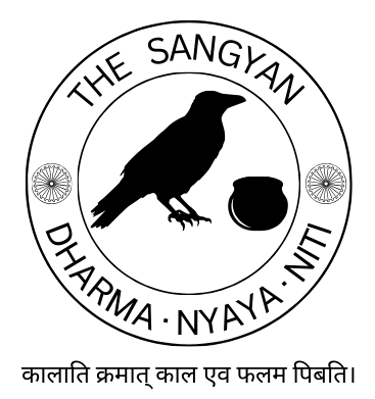Advocating for Sustainable Changes!
NITI Aayog's report, National Multidimensional Poverty Index (MPI): A Progress Review 2023 (based on NFHS-5) aims to facilitate data-driven decision making, formulation of sectoral policies, and targeted interventions which contribute towards ensuring that “no one is left behind” as with its own national MPI, India is poised to gain a deeper understanding of poverty’s complexities and forge solutions that ensure inclusivity for all.
The report highlights - "Historically, poverty estimation has predominantly relied on income as the sole indicator. However, the Global Multidimensional Poverty Index (MPI), based on the Alkire-Foster (AF) methodology, captures overlapping deprivations in health, education, and living standards. It complements income poverty measurements because it measures and compares deprivations directly." and "Government of India has acknowledged the significance of the global MPI under the mandate of the Global Indices for Reform and Action (GIRG) initiative. The emphasis of the GIRG initiative is not only to improve the country’s performance and ranking in the global indices, but also to leverage the indices as tools for driving systemic reforms and growth."
Like the global MPI, India’s national MPI has three equally weighted dimensions which are represented by 12 indicators – 1. Health [Nutrition, Child & Adolescent Mortality and Maternal Health], 2. Education [Years of Schooling and School Attendance], and 3. Standard of Living [Cooking Fuel, Sanitation, Drinking Water, Housing, Electricity, Assets, and Bank Account].
To further the cause of End Poverty [SDG 1], we need to expand the parameters to have a better and more accurate picture of the reality by including factors such as - 1. Climate and Disaster Resilience/Preparedness, 2. Disability-adjusted Life Years, 3. Universal Accessibility, and 4. Universal Health Coverage as they affect the cost of living, quality of life, and trigger hunger and poverty.
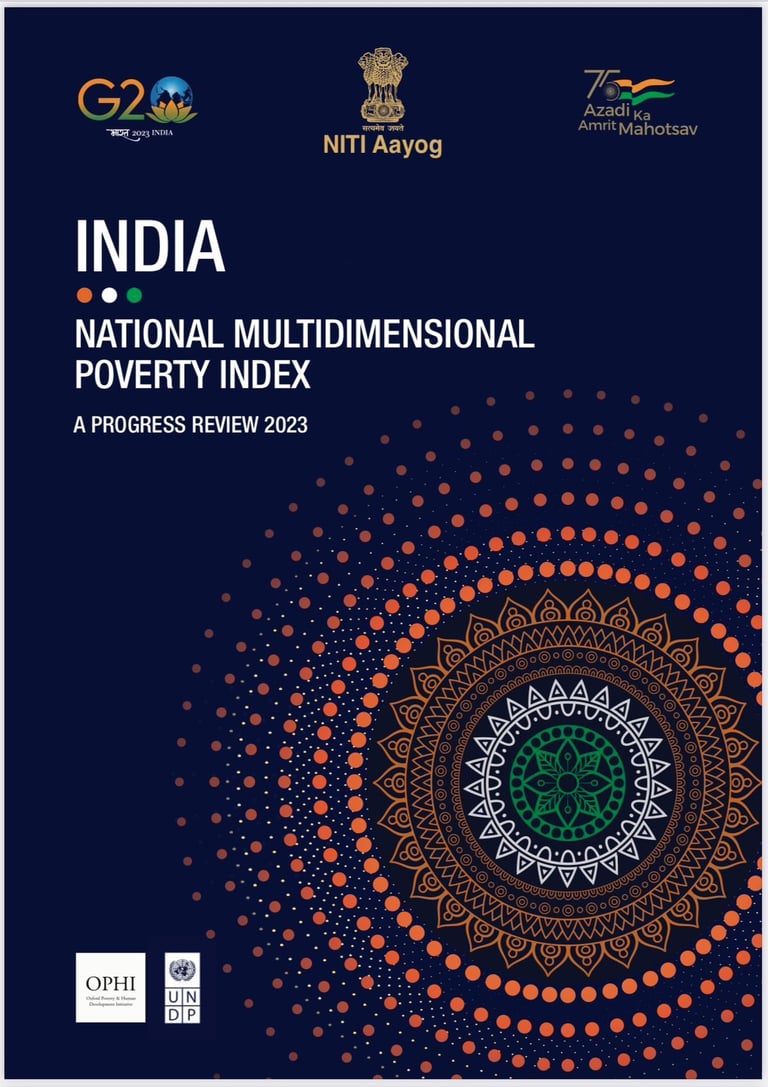

Climate Litigation represents a frontier solution to change the dynamics of the fight against climate change. The Global Climate Litigation Report: 2023 Status Review shows that people increasingly turn to the courts to combat the climate crisis. Climate litigation has more than doubled in the last five years and is now vital in delivering climate justice.
The Report provides an essential resource for all to understand the current state of global climate litigation, including descriptions of the critical issues that courts have faced during climate change cases. The Report further demonstrates the importance of an environmental rule of law in combating the triple planetary crises of climate change, biodiversity loss and pollution. The Report reiterates that access to justice protects environmental law and human rights and promotes accountability in public institutions.
The Report states that children and youth, women’s groups, local communities, and Indigenous Peoples, among others, are taking a prominent role in bringing these cases and driving climate change governance reform globally.
Ergo, it's imperative for the disability sector to mainstream legal advocacy to achieve disability-inclusive climate justice, given climate change acts as a threat multiplier having a disproportionate impact on vulnerable communities, especially persons with disabilities, because of their greater exposure, higher sensitivity, and lower ability to adapt and mitigate to climate change impacts.
Moreover, to ensure access to justice to fight climate change for persons with disabilities, our courts and tribunals must adhere to principles of universal accessibility in all aspects, including the built environment, court websites, and transportation.
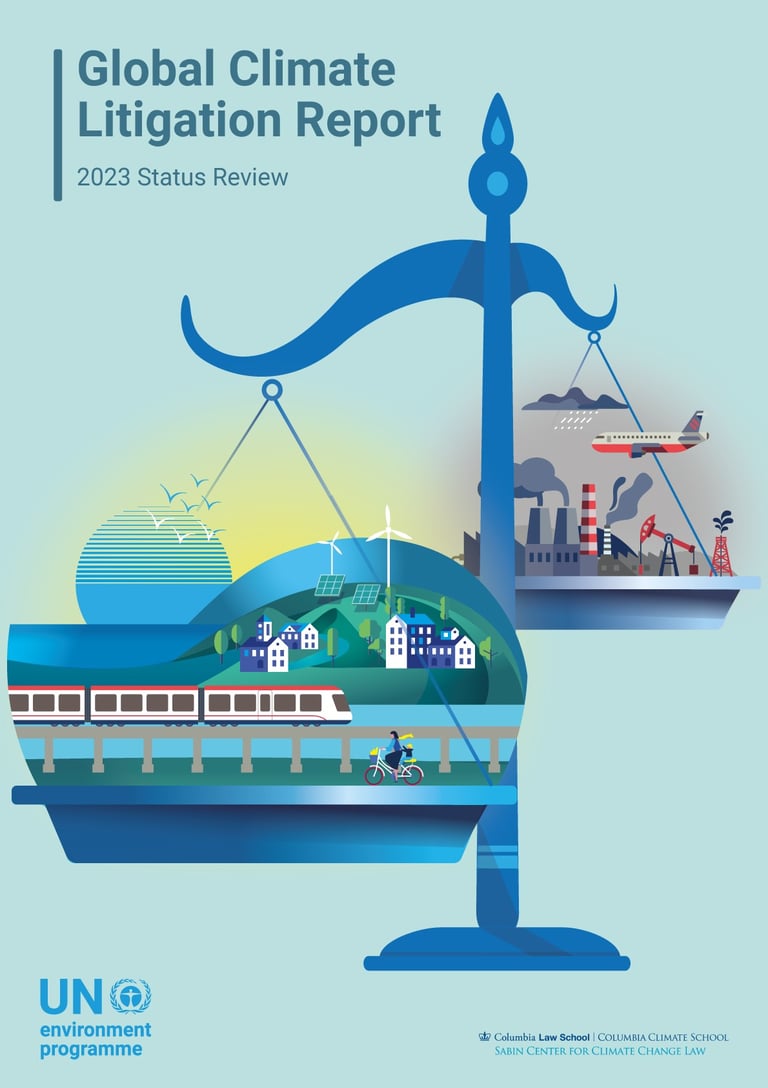

Making a Case for a Handbook on Combating Disability Stereotypes
The recently launched Handbook on Combating Gender Stereotypes by the Supreme Court of India aims to assist judges and the legal community in identifying, understanding and combating stereotypes about women. It contains a glossary of gender-unjust terms and suggests alternative words or phrases that may be used while drafting pleadings, orders, and judgments. There is a need to formulate a similar Handbook on Combating Disability Stereotypes. The Handbook on Combating Disability Stereotypes would be a valuable resource for judges, lawyers, and other legal professionals. It would help them to identify and avoid using language that reinforces negative stereotypes about people with disabilities. The handbook would also provide information on the rights of people with disabilities and how to ensure that these rights are protected in the legal system. There is a need for a handbook on disability stereotypes in India, as people with disabilities are often subjected to discrimination and prejudice, and this can have a significant impact on their lives. The handbook would help to raise awareness of the issue of disability stereotypes and would provide practical guidance on how to combat them. In that background, The Sangyan has submitted, to the Chief Justice of India and the Supreme Court of India, a representation requesting a similar handbook on disability stereotypes and inclusive languages, given the stigma and taboo related to disability identity and hopes that the guardian of our constitution will take cognizance and appropriate measures to combat disability stereotypes within the Indian legal system.
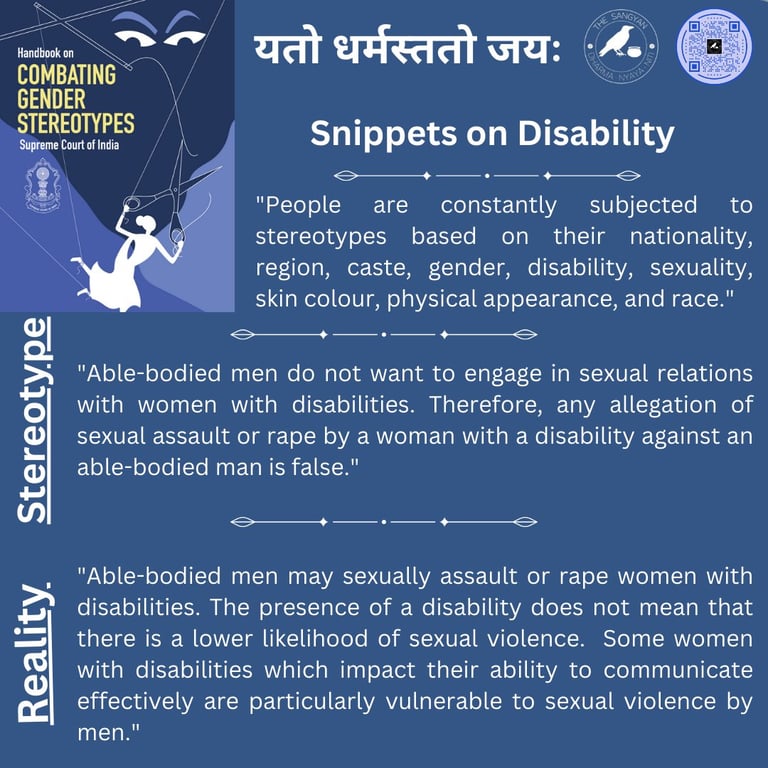

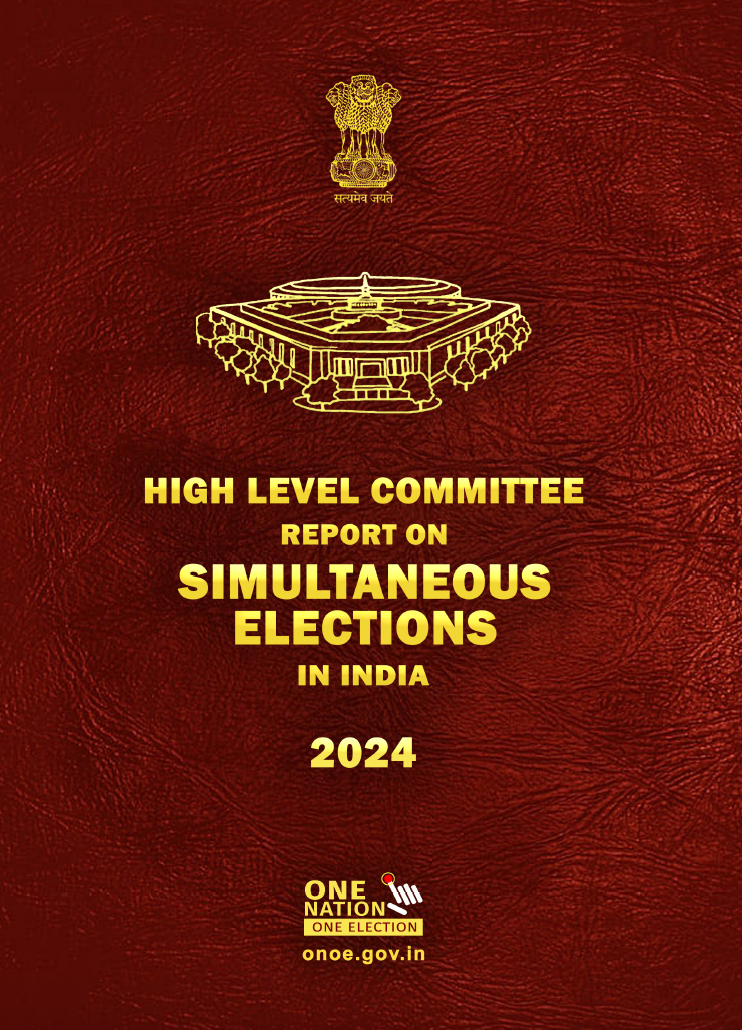

Statement on One Nation, One Election [15th January 2024]
Statement on concerns as well as the proposed sustainable solution regarding the holding of simultaneous elections in India.
Though the intention behind holding simultaneous elections is praise-worthy and even pressing given the financial burden and administrative inefficiency that the prevailing conditions i.e. the continuous cycle of elections and bye-elections, causes (resulting in corruption and its induced black economy for election funding, the shift in focus from administration to conducting regular elections, lack of policy decision-making during the period of Model Code of Conduct, legislators and elected executive in constant election mode, etc.), however, ‘One Nation One Election’ may not be the right and sustainable solution that we need to be searching for its unintended consequences which may turn out to be largely negative than creating a domino effect of positive changes.
We must account for the Four Orders of Impacts (plausible consequences including its positive and negative externalities) before deciding and implementing any such watershed instrumental decision that shall shape the very nature of our democratic setup and its functioning:
1. First Order of Impact [Immediate-term] - Confusion and Political Deadlock
2. Second Order of Impact [Short-term] - Execution Challenges among Legal Challenges in Courts
3. Third Order of Impact [Medium-term] - Administrative Stability and Budgetary Control with combined elections
4. Fourth Order of Impact [Long-term] - Lack of regular electoral accountability, overlapping of political discourse, and challenges in situations of mid-term elections, by-elections, and hung assemblies.
Note: This is merely an illustrative list and not an exhaustive one.
To ensure periodic accountability and clarity of mandate, among other concerns of a constitutional democratic election system, there shall be a system of three-tier election structure with the National Election [Lok Sabha for Parliament of India], State Elections for all the States [Vidhan Sabha and Vidhan Parishad for respective states], and local elections (Panchayat and Municipal bodies) taking place at the regular interval of every 20 months. (12 months * 5 years = 60 months / 3 tiers of govt = 20 months interval). Alternatively, in place, make the time period for elections to six years and then three-tier electoral systems at intervals of every two years.
In the situation of any hung mandate or dissolution of parliament/legislative assembly or presidential rule, etc., the election shall be clubbed with the next cycle of elections irrespective of the tier but only for the remaining period of time (as the ground principles will be equal for all the political parties and known beforehand like the DRS in Cricket - the shortening of time because of early elections in exceptional cases will even out in the long run without any benefit or loss to any one stakeholders).
This will help save one set of elections from getting coloured by the issues of another, while (not so) regular elections will keep a political check over the political parties by telling the mood of the country without throwing the state machinery into the election process all the time and ensuring budgetary discipline.
Contact Us
abhishek.thesangyan@gmail.com (Founder) thesangyan.in@gmail.com (Organization) Linktree: https://linktr.ee/sangyan and
https://linktr.ee/thesangyan
